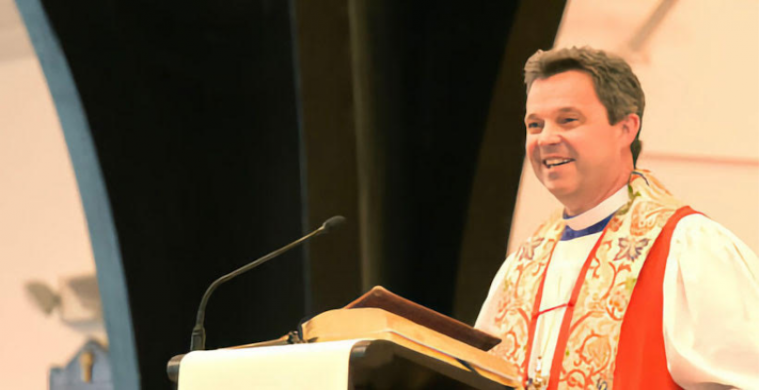New ACNA Archbishop's Position on Women's Ordination could have Repercussions for Denomination
COMMENTARY
By David W. Virtue, DD
www.virtueonline.org
June 24, 2024
The Rt. Rev. Steve Wood, Bishop of the Diocese of the Carolinas and rector of St. Andrew's Church in Mount Pleasant, South Carolina has been elected the third Archbishop of the Anglican Church in North America at its recent conclave at St. Vincent's College in Latrobe, PA.
He follows in the footsteps of Bishop Robert Duncan and more recently Bishop Foley Beach the first and second archbishops of the ACNA.
What separates the three bishops is their views on the ordination of women to the priesthood. ACNA rejects women being ordained to the episcopacy.
Bishop Duncan affirmed the ordination of women priests when he was Bishop of Pittsburgh. Bishop Beach did not. Beach opposed the ordination of women, unlike his predecessor, but subscribed to the right of each diocese to their own decision on the matter. A majority of ACNA bishops do not ordain women.
Bishop Wood's position is more nuanced. The Anglican Diocese of the Carolinas Policy for Women in Order has supported the ordination of women as deacons and priests in the church, with the provision that women may not serve in the office of rector.
The bishop argued that this provision grew out of their engagement with Scripture which is silent on who may preside at the Table and celebrate Holy Communion while it is not silent on who may assume the teaching/overseeing office of a congregation.
This policy was clearly re-articulated when Southeast PEARUSA churches (PEARUSA was the North American missionary district of the Anglican Church of Rwanda), joined the Diocese of the Carolinas in 2016, along with its provision that no parish will be required to ordain, hire, or conform to a position on the ordination of women that is contrary to their belief or conscience on this matter.
Alice Linsley a cultural anthropologist, former Episcopal priest who renounced her orders as a priest after extensive biblical scholarship, told VOL that the weird constraints placed on ordained women in Bishop Steve Wood's diocese are the result of an unbiblical doctrine called "male headship."
"Both women and men can be in authority, but not serve in the same roles. In the biblical texts, women of authority are not named as frequently as men of authority simply because the Hebrew were a caste of ruler-priests and women never served as priests. To be right believing means to uphold the received tradition in full. That tradition never involved females at the altar or men in the birthing chamber. Women and men have different roles in God's plan and design."
"To understand the gender balance of the early Hebrew, we must dismiss the false narrative that their social structure was patriarchal. The traits of a patriarchy do not apply to the biblical Hebrew from whom we receive the earliest elements of the Messianic Faith we call "Christianity." There were Hebrew women of authority. Line of descent was traced through high-status wives, especially the cousin brides. Residential arrangements included neolocal, avunculocal, matrilocal, and patrilocal, and the biblical data reveals that the responsibilities and rights of males and females were balanced, yet distinct."
Linsley said the priesthood of the Church emerges from the oldest known priesthood, that of the early Hebrew ruler-priests (4200-2000 BC). "It is a received tradition and sacred unto God. Only males offered blood sacrifice at the altars. Women were not permitted in the area where animals were sacrificed. Likewise, men were not permitted in the birthing chambers where women shed blood in childbirth. These distinct types of blood work speak of death and life and the two were never to be confused. Therefore, the blood work of the Hebrew priests and the blood work of the Hebrew women never shared the same space. That received tradition must be preserved because it speaks of divine mysteries."
Women's ordination remains the elephant in the sacristy. It has the ability to tear the ACNA apart if Anglo-Catholics and those evangelical bishops and clergy who reject WO decide it is a bridge to far to remain in.
In the 15 years since the ACNA was born from the revisionist body of TEC, the issue has not gone away. It continues to fester. Only time will tell if it can be resolved to the satisfaction of all parties.
END














